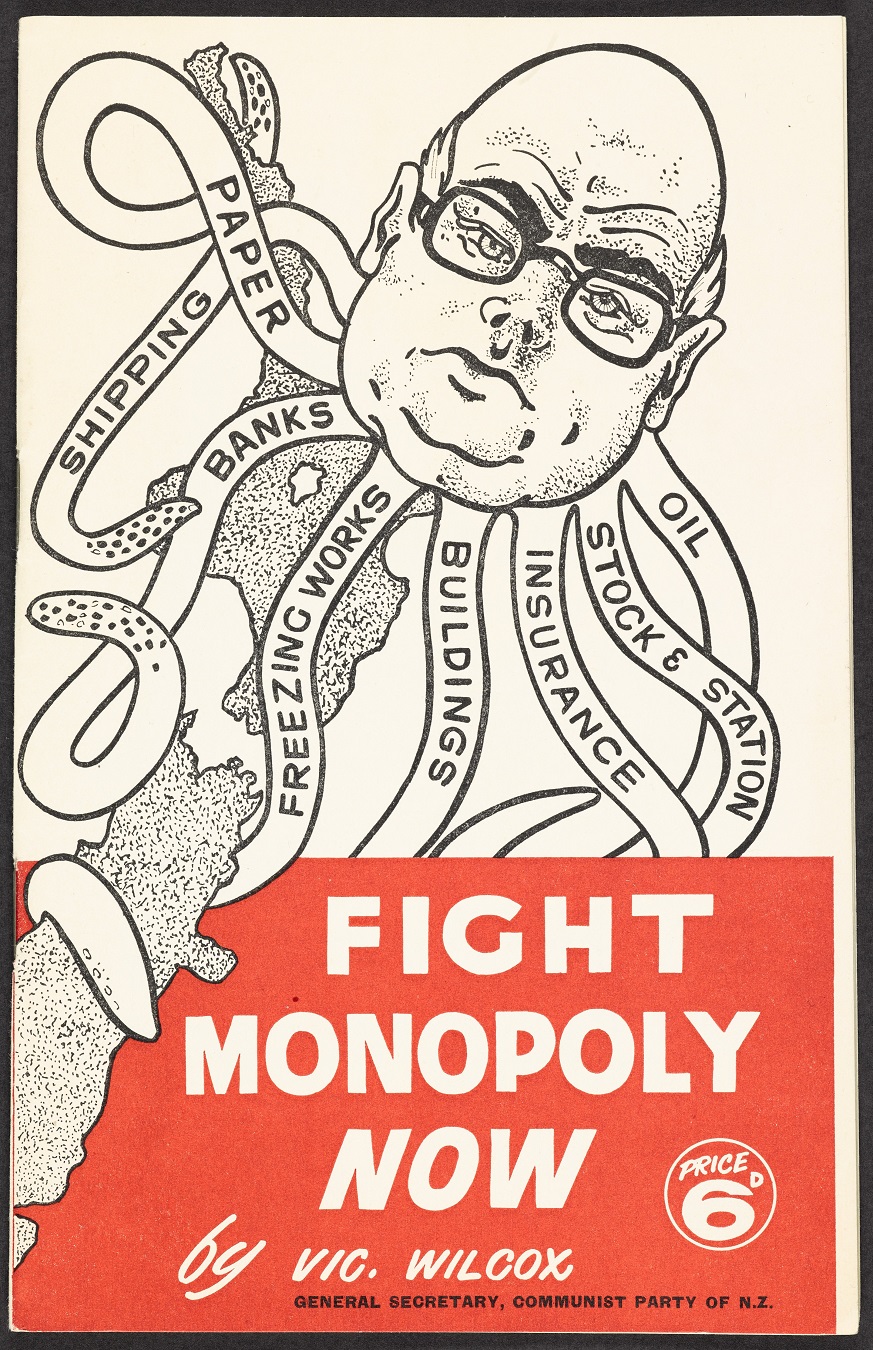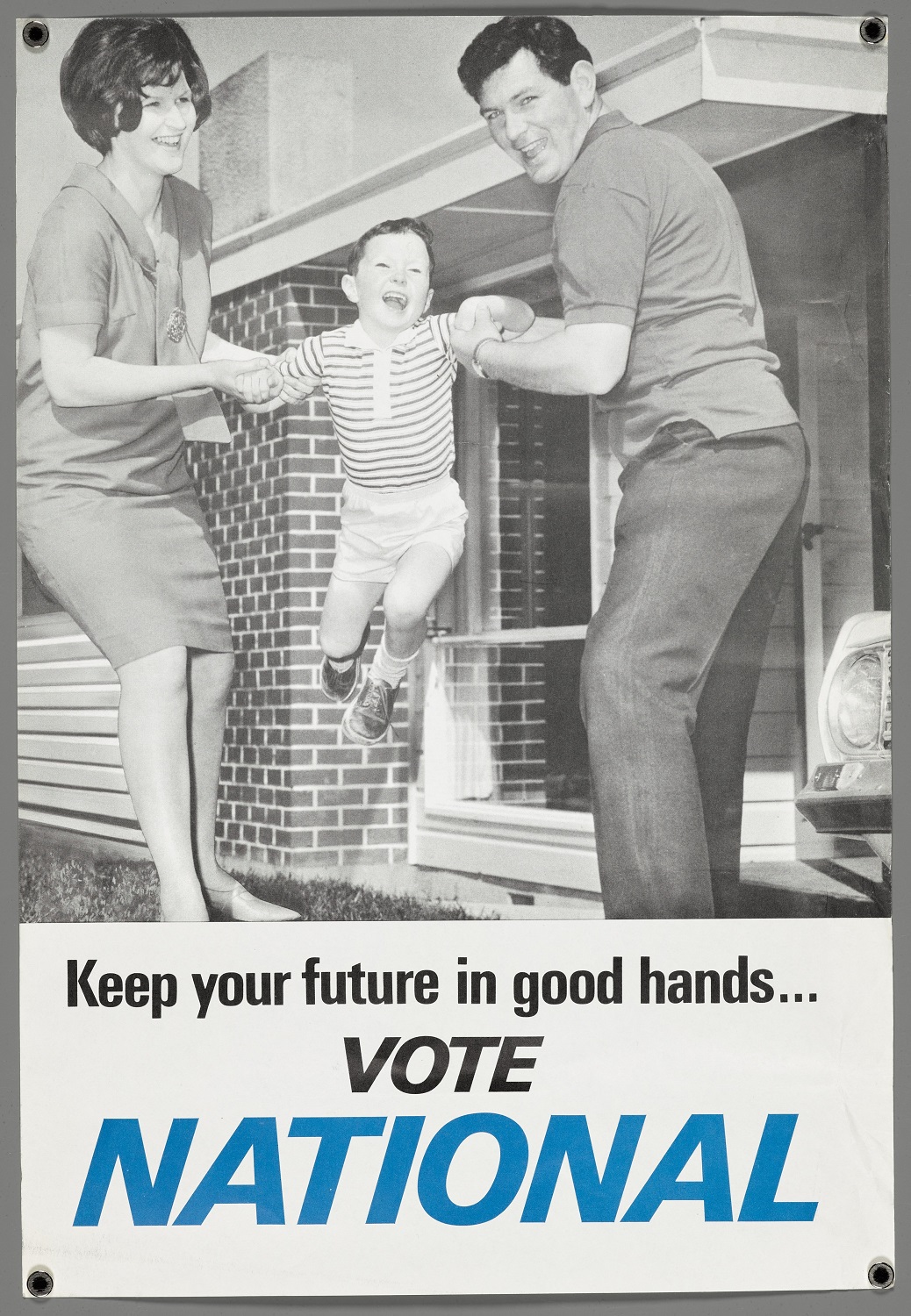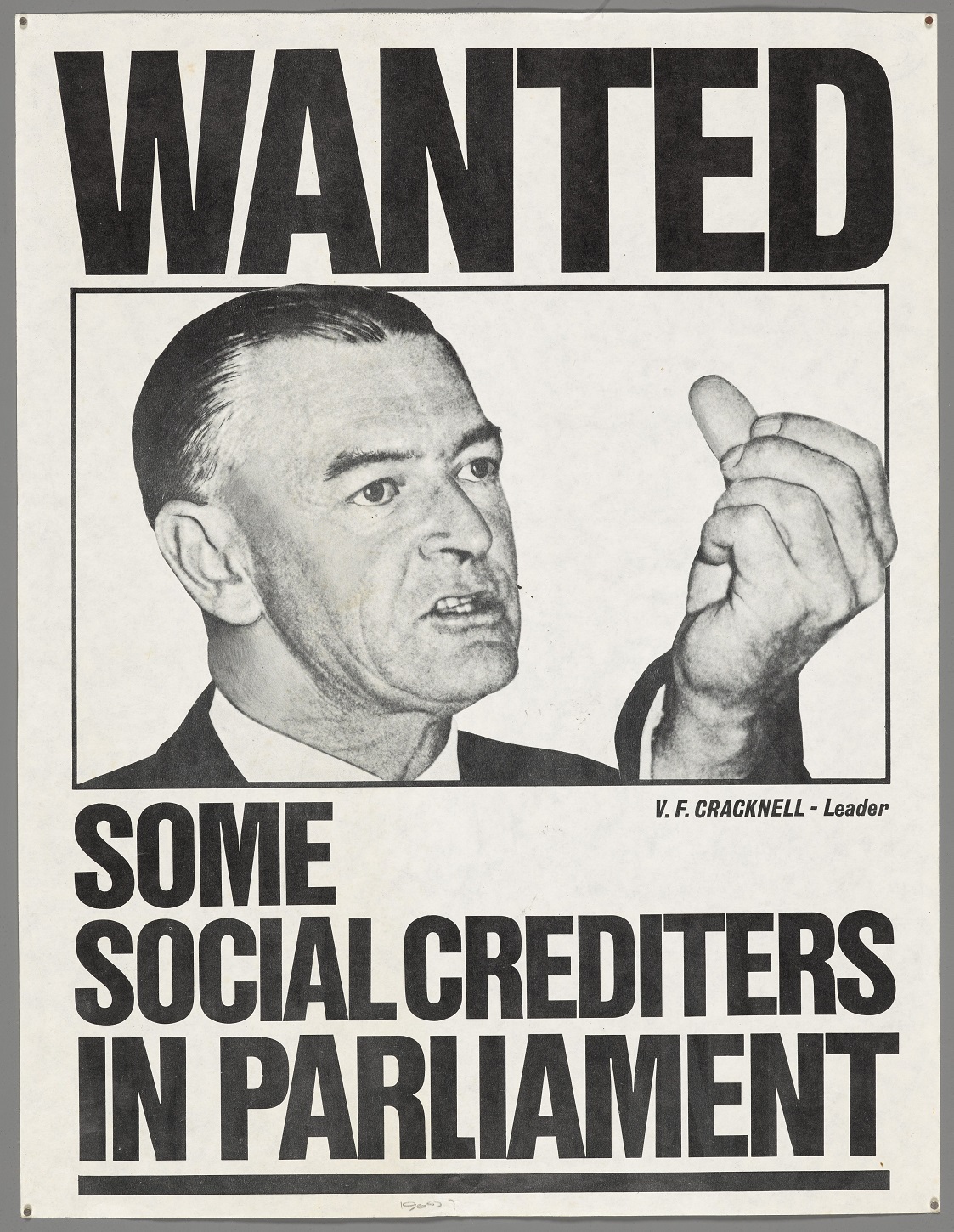Promises, promises, politicians have been making them forever, the proof of which lies in Hocken Collections’ election ephemera, writes Baylee Smith.
Election day, next Saturday, marks the end of the distribution of campaign materials for the 54th Parliament of New Zealand. Some voters use this material to inform their vote, while for others it is merely a nuisance, destined for the bin. For the Hocken Collections, it is a valuable record of our country’s political history actively collected and preserved by staff.
Since 1966 Hocken staff have solicited electioneering material from all general election candidates to ensure that a broad spectrum of political viewpoints is preserved for researchers. In 2017, this approach was extended to the collection of material (including hoarding photographs) from electorate residents. The Hocken is also fortunate to receive donations from private collectors, including the late former Labour MP for Dunedin North, Stan Rodger, whose donation included the rare 1963 poster featuring Arnold Nordmeyer (above) — compare this to Nordmeyer’s portrayal on the 1960 Communist Party leaflet (below).
Hocken’s election ephemera collection includes posters, flyers, leaflets, badges, stickers, rosettes, and more. Dating from 1890 to the present, it presents a unique resource for exploring themes in electoral campaigning over time.
The National Party’s 1966 "Keep your future in good hands ... Vote National" poster exemplifies the common mid-20th-century trope of the smiling Pākehā nuclear family. Meanwhile, Māori are featured infrequently until the 1990s. Women in the 1950s were fashionable housewives, depicted in grocery stores to highlight rising household costs. This portrayal shifts significantly in 1975 (International Women’s Year) after a government report highlighted many barriers to women’s progress. This was the first year that all major political parties included policies on women’s issues in their manifestos. Electioneering material reflects this focus with headings such as "A woman’s place is everywhere" (Labour Party). In 1984 the New Zealand Women’s Political Party briefly campaigned with the slogan "A Woman’s Place Is In The House".
Likewise, how candidates present themselves changes markedly over time. The portraits of stern-faced politicians, who, through to the 1970s, were often known by last name only (such as Social Credit Leader V. F. Cracknell in the 1969 "Wanted" poster), gave way in the 1990s to the smiling portraits that predominate today.
Mediums used to carry campaign messages have also shifted with time. The once-popular pocket calendar dropped out of common use in the 1990s. For the past 15 years parties and candidates have made increased use of digital platforms to get their messages to the masses.
This collection also highlights independent candidates and small parties that never won seats in Parliament, such as the No Confidence Party, Mana Motuhake, Natural Law Party, and McGillicuddy Serious Party.
This collection is currently being listed on our catalogue Hākena (reference number: Eph-Gp-0010). The most recent elections are not yet listed but can easily be retrieved for consultation in the reading room. A broad range of political papers are also held in the archives. Further information about our holdings can be found in our "Political sources" research guide, available from our website.
Visiting the collections
- Hocken Collections is open Tuesday-Saturday, 10am-5pm. Public tours are available on Thursdays at 11am. Inquiries: (03)479-8868 or
www.otago.ac.nz/library/hocken.
- Image references: Social Credit, EPH-0010-JQ-D-13/01, EPHEMERA COLLECTION; Honest leadership, EPH-0010-JQ-D-11/01, EPHEMERA COLLECTION; Fight monopoly, EPH-0010-JQ-A-39/01, EPHEMERA COLLECTION; Good hands, EPH-0010-JQ-B-14/01, EPHEMERA COLLECTION.
Baylee Smith is collections assistant at Hocken Collections

















